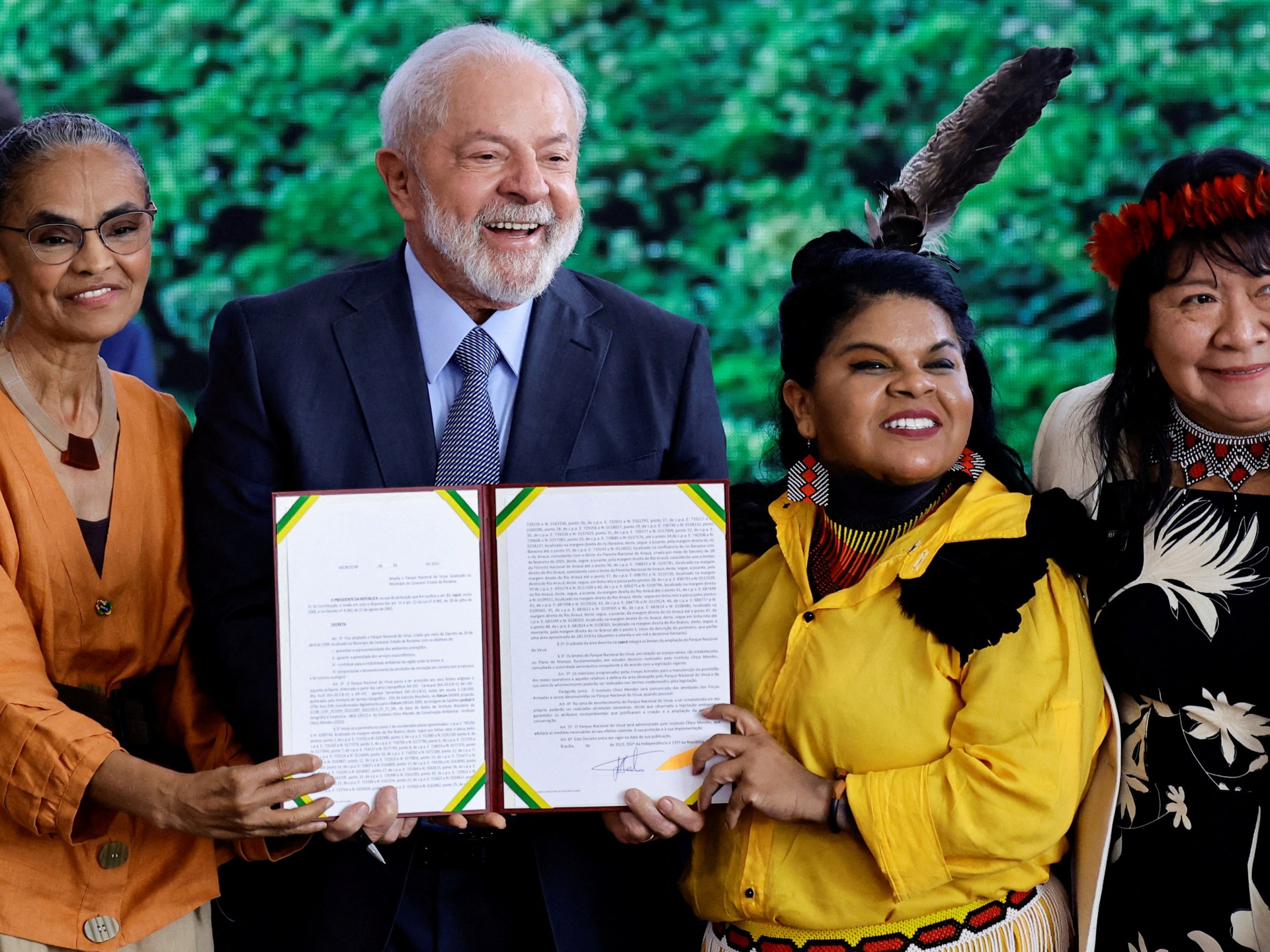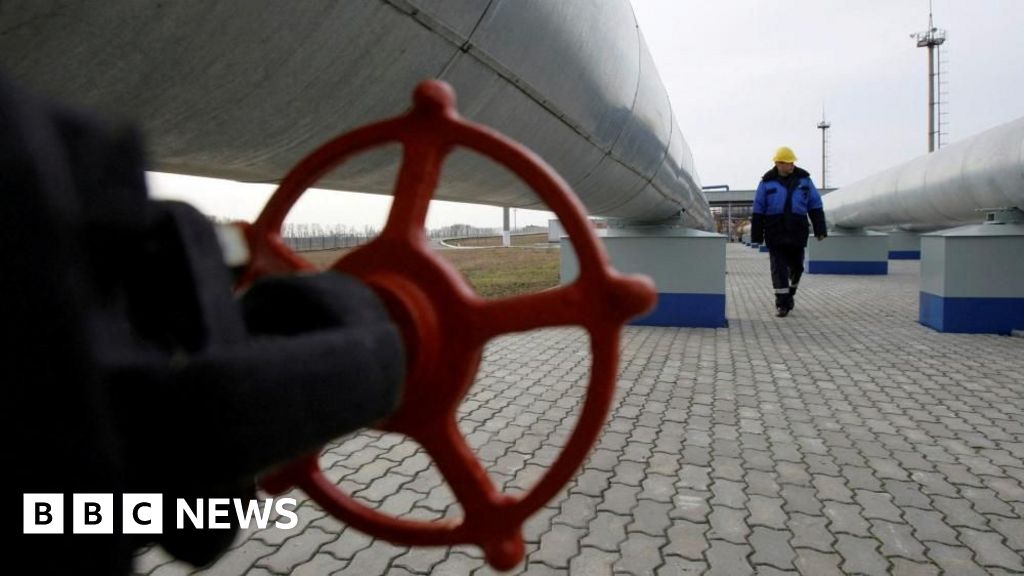Trump 2.0 can open the door for a greener world | Opinions

Last year was disastrous for the environment and climate change. UN-backed talks to address biodiversity, plastic pollution, desertification and climate change have collapsed or produced woefully inadequate agreements. Donald Trump’s re-election to another term in the United States signaled that pressures against climate action will intensify.
All this came in a year that broke the record for the hottest year, and for the first time average global temperatures exceeded the limit set by the Paris Agreement: 1.5 degrees Celsius above pre-industrial levels.
As 2025 begins, the prospects for meaningful climate action look bleak. But Trump 2.0’s anti-climate policies and the intransigence of other major countries and polluting companies could also drive momentum from the rest of the world toward radical change. Indeed, 2025 could open the way for the Global South to drive climate action, and it makes sense for Brazil – as the host of this year’s COP30 – to lead the way.
Brazilian President Luiz Inacio Lula da Silva returned to power two years ago on the promise of social and environmental change. But after initial successes, his administration lost momentum. This year may be Lula’s last chance to make good on his promises, take a global lead on climate change, and ensure that his legacy as a change-maker extends beyond Brazil’s borders.
Failed promises
During his presidential campaign, Lula strongly emphasized his rejection of the anti-environmental and anti-minority policies of his right-wing predecessor Jair Bolsonaro and promised to reverse them, focusing on preserving the Amazon and protecting vulnerable communities, including indigenous people.
After his victory, he appointed climate activist Marina Silva to head the Ministry of Environment and indigenous leader Sonia Guajajara to head the new Ministry of Indigenous Affairs. At his inauguration on January 1, 2023, he marched with prominent indigenous leader Chief Rauni, who has become a symbol of the struggle to preserve the Amazon rainforest.
Three weeks later, he visited a Yanomami community devastated by land grabbing, violence by illegal miners and loggers, food insecurity, and disease. He described their plight as genocide and promised immediate action.
Climate change has also become one of the pillars of his foreign policy. At the 2023 UN Climate Change Conference (COP28) in Dubai, where countries of the Global South were pushing for progress on climate action, Lula declared: “Brazil is ready to lead by example.”
There have been some initial breakthroughs. In the first six months of Lula’s presidency, Amazon deforestation decreased by 33.6 percent. Police and the army were deployed to crack down on illegal mining, and within a few months, they were there Sharp decline In the number of illegal mines operating. In May, the Brazilian Institute for the Environment and Renewable Natural Resources issued a ban on oil exploration off the coast of the Amazon Delta.
But Lula’s government failed to maintain the momentum. Security operations against illegal miners have slowed, allowing them to resume their activities. Mortality rates among Yanomami children It continued to increase Indigenous communities continued to suffer.
Progress in deforestation began to slow, and in August 2024, deforestation rates declined rose once again. At the same time, the expansion of lands allocated for agriculture and livestock raising did not stop; Just that I turned To the Cerrado savannah, where deforestation doesn’t make the headlines the way the Amazon does.
At the same time, the Lula administration was seeking to complete the BR-319 highway that was supposed to connect the northern states of Amazonas and Roraima with other parts of Brazil. The construction passes through the Amazon region and will have a catastrophic impact on the environment and indigenous communities.
Lula has also spoken out in favor of oil exploration off the Brazilian coast, while Brazil has faced some of its worst floods and forest fires. It also confronted his government’s actions regarding those criticisms.
From January to October, wildfires swept through Brazil, destroying large swaths of the Amazon rainforest and devastating Pantanal indigenous communities; About 37.42 million acres, or about 15.1 million hectares, were burned. Despite the unprecedented scale of the crisis, Lula did not declare a state of emergency, which would have helped local authorities easily access federal resources to deal with the crisis.
Last chance to work
When Trump returns to the White House in Washington, he is sure to make good on his promises to roll back environmental regulations and pave the way for dirty industries to pollute as much as they want. Other wealthy countries and companies are already starting to back away from their climate commitments.
In this environment of complete disregard for the ongoing climate catastrophe and the plight of the people most affected by it, the world needs a leader capable of taking decisive action. For two years, Lula has been giving beautiful speeches about the need to act against climate change, the need to protect the poor, and the need to put things right between those responsible for climate disaster and those who bear the brunt of it.
It is time for him to put his words into action. It is time for him to lead by example, he announced in 2023. He has all the human and natural resources at his disposal to do so.
Brazil is home to the largest rainforest on Earth and nearly 1.7 million indigenous people who know how to protect and care for nature. They know what to do to conserve this amazing carbon store, as they have the smallest carbon footprint of us all. They must be made part of not only the urgent action needed to protect their communities, but also Brazil’s overall climate and environmental policies.
Hearing from indigenous people, as well as dozens of environmental experts and activists, some of whom are already in Lula’s administration, means the president will have to abandon some traditional relationships with big business.
Lula’s Workers’ Party (PT) is known for its addiction to fossil fuels. It’s time to put an end to it. Although Brazil’s public oil company, Petrobras, is an important economic player, it should not dictate the government’s environmental and economic policies. Given the low cost of setting up renewable energy production, Brazil is able to invest in a massive expansion of wind and solar energy. Petrobras is already making such investments; Instead of insisting on more oil exploration, it could double down on solar and wind power and become the country’s leading renewable energy company.
Lula will also have to break free from the toxic influence of big agribusiness. There is a way to farm and raise livestock without deforestation and pollution. Pushing the industry to adopt sustainable green practices will not destroy it; It will make it more resilient in the face of the inevitable climate disasters that will hit the country.
The same applies to the mining sector. Lula’s government has already made some efforts to regulate this and eliminate illegal practices, but it needs to go all the way. Illegal mining on indigenous lands and nature reserves must be eliminated.
The government could create a task force bringing together federal and state law enforcement agencies with the Intelligence Branch and the military to focus on the issue. They could not only recruit the indigenous people to help them, but also all those poor people who were attracted to illegal mining due to unemployment. Eliminating illegal mining would not only preserve rainforests and protect indigenous communities, but would also deal a strong blow to organized crime.
The truth is that strong climate and nature conservation policies will benefit not only the natural environment, but also the people of Brazil. It would open up more safe and decent work opportunities – a key demand of Labour’s electoral base.
Leading radical change at home would give Lula more credibility to do so on the global stage. Words supported by actions can have a powerful impact. At a time when the world’s people feel abandoned by political elites, demonstrating commitment to climate action and the well-being of vulnerable communities can mobilize millions and create enough momentum to push inactive governments into action. This could be his global legacy if he has the courage to pursue it.
The opinions expressed in this article are those of the author and do not necessarily reflect the editorial position of Al Jazeera.
https://www.aljazeera.com/wp-content/uploads/2025/01/2023-09-05T215142Z_1782503355_RC2J23AZLSR6_RTRMADP_3_BRAZIL-INDIGENOUS-1736593945.jpg?resize=1920%2C1440
2025-01-11 12:16:00





